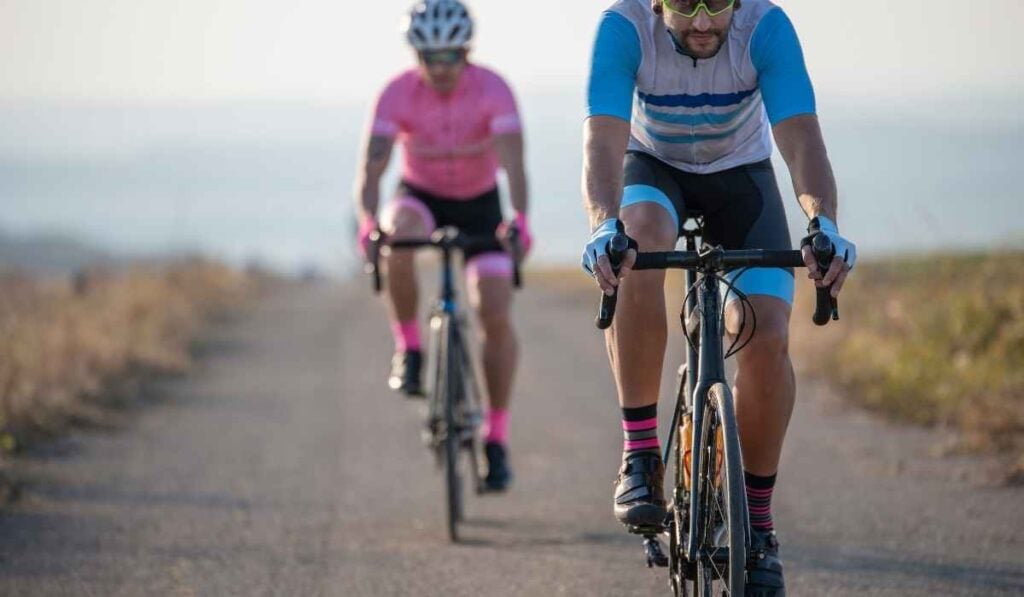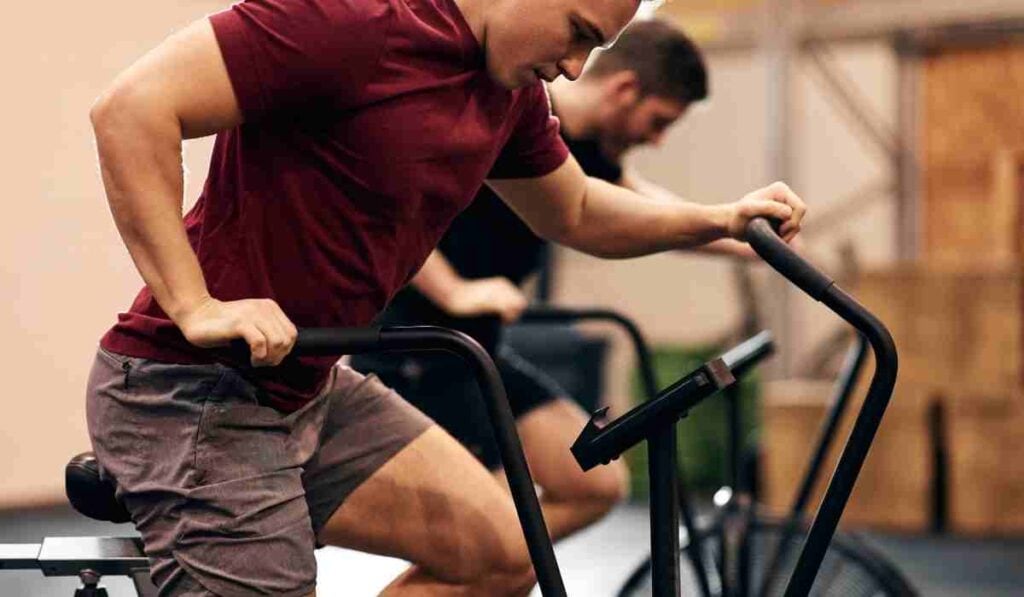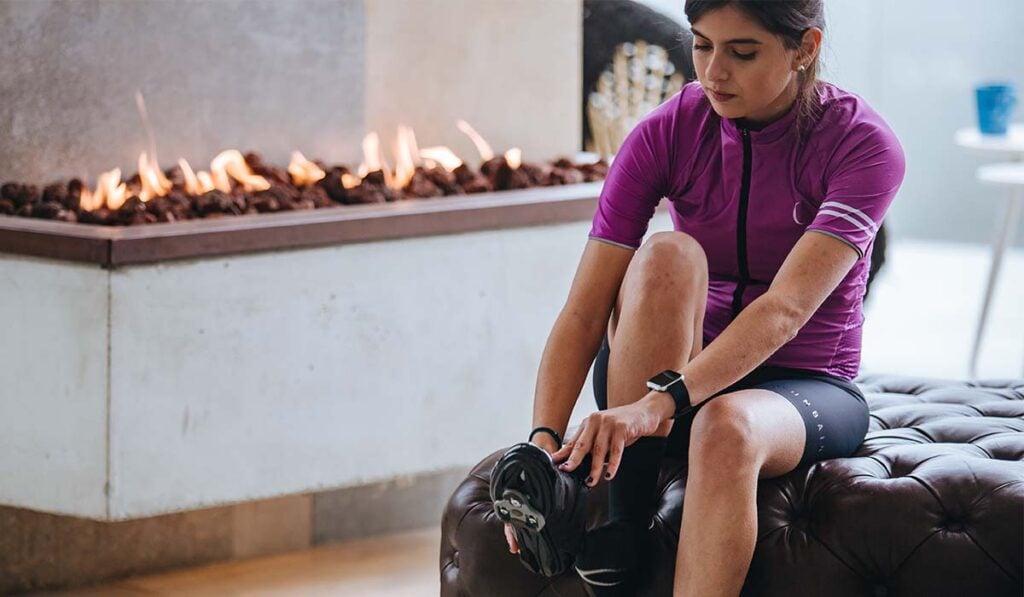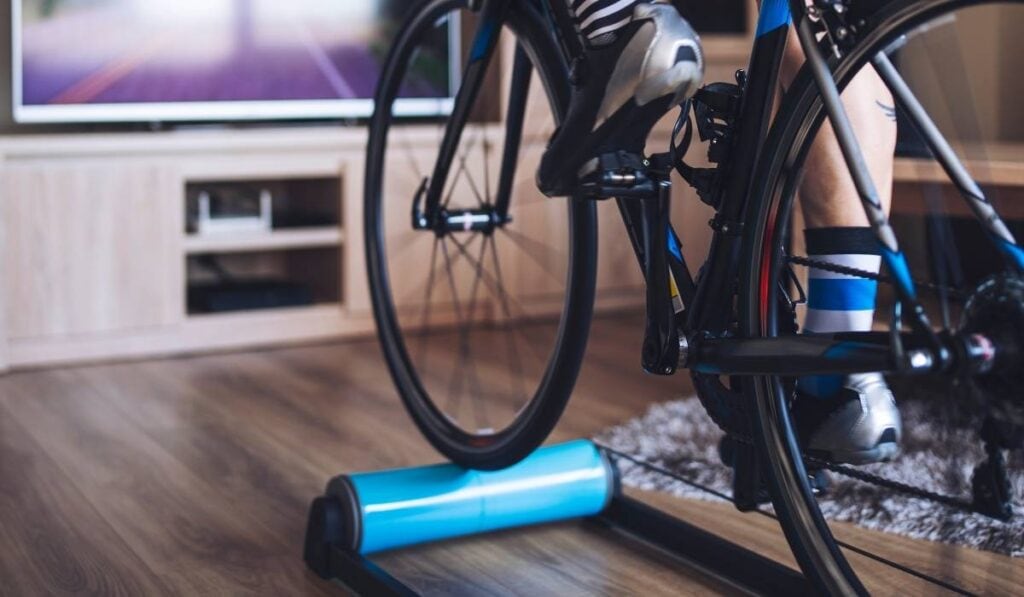
Is It Okay to Cycle While Sick?
A cold or flu might temporarily disrupt your training plans, but it doesn’t have to! Although taking a few days off the bike to recover is totally fine, you may be able to continue cycling through it. If you are dealing with cold or flu symptoms, here’s what you need to know about cycling while sick.
Is it okay to cycle while sick?

Mild or moderate cycling is typically okay while you’re sick. It may even open up your nasal passages and temporarily help you get some relief from congestion. Most health experts say you’re good to cycle if your symptoms are above the neck (sore throat, coughing, sneezing, runny nose, etc.).1,2
If you decide to cycle while sick, it’s best to cut your efforts back by about 50%.1 Instead of biking for an hour, stop after 30 minutes. Or, try another type of low-impact exercise, like yoga.
However, you should avoid cycling while sick if your symptoms are below the neck (coughing, chest congestion, upset stomach, body aches, etc.) or if you have a fever. Continuing to train with these symptoms might worsen them or prolong your recovery.
When in doubt, it’s best to listen to your body. If you feel miserable, take a few days off, get some rest, and return to cycling once you’re feeling better.
When can I return to cycling?

In most cases, once your fever, cough, body aches, or other symptoms below the neck have resolved, you can go back to cycling. Of course, it’s always best to check with your doctor first.
When you do return to cycling, do it gradually. Take note of how your body feels when you start cycling again, and don’t push yourself too hard. It’s tempting to make up for lost time, but taking things slowly and gradually is best. It’s better to lose a little bit of your fitness momentum than to remain sick and prolong your recovery because you’re overdoing it.
If you’re recovering from a severe illness, you should speak with your doctor about how and when to return to your exercise routine.
Does cycling boost your immune system?

Yes, research supports the idea that regular physical exercise like walking, running, or cycling helps to support your immune system and fight off conditions like the common cold, flu, and COVID-19.3
Although completing a single bike ride won’t boost your immune system, making it a habit will. Regular cycling can benefit your immune system in several ways:
- It increases your blood flow and circulates your white blood cells around your body more freely.
- Cycling also reduces stress and inflammation, which allows your immune system to perform better.
- Regular exercise like cycling strengthens antibodies to fight off foreign invaders.
On the other hand, a very vigorous or prolonged exercise regimen can have the opposite effect and temporarily impair your immune system. So, as we mentioned earlier, take it slow and listen to your body.
Other tips for cycling while sick

If you choose to cycle while you’re sick, here are a few common-sense guidelines to keep in mind:
- Avoid group bike rides until you’re feeling better. You could unintentionally get others sick if you participate in group rides while feeling under the weather. Just as it’s important to consider your own health and well-being while cycling, the same goes for others. Be mindful of others’ safety by avoiding group exercise until you feel 100% better.
- Focus on short and low-intensity workouts while you’re sick. When you’re exercising, your body still needs energy to fight off whatever sickness you have. So don’t overdo it! Prioritize low-intensity exercises that won’t leave you exhausted or dehydrated or exacerbate your current symptoms. With that in mind, your bike ride doesn’t have to be hours long to be beneficial. A short ride is still great for your body and mind when you’re sick.
- Stay hydrated. Being dehydrated can make you feel even worse when you’re sick. So drink up and make sure you’re getting enough water, especially while cycling.
- Get lots of rest. Even if you feel up for cycling while you’re sick, get plenty of rest too! Resting will give your body the time it needs to recover from being sick. So don’t hesitate to go to bed early, take a nap during the day, or skip your scheduled bike ride if you’re feeling too tired to do it.
- Cycle in a warm, indoor environment when you get back into it. If you’re sick or just beginning to recover from a cold, don’t head straight outside to bike in the cold winter weather. The cold air could worsen some symptoms and prolong your recovery. Instead, consider cycling indoors on a stationary bike with Vingo. It’s a fun way to fit in a workout without battling the cold winter weather or bike through rain or snow while you’re sick.
Key Takeaways:
It’s usually okay to cycle while you’re sick if your symptoms are mild, but if you’re unsure, do the neck test. If you have symptoms above the neck (sore throat, coughing, sneezing, runny nose), it’s usually okay to cycle. However, if you have symptoms below the neck (coughing, chest congestion, upset stomach, body aches) or a fever, it’s better to rest instead.Sources:
- Bone, M. A. J. T. (2022, December 15). Should You Really Work Out When You’re Sick? Cleveland Clinic. https://health.clevelandclinic.org/should-i-still-work-out-if-im-sick-or-skip-it/
- Exercise and illness: Work out with a cold? (2022, February 23). Mayo Clinic. https://www.mayoclinic.org/healthy-lifestyle/fitness/expert-answers/exercise/faq-20058494?reDate=31012023
- da Silveira, M. P., da Silva Fagundes, K. K., Bizuti, M. R., Starck, D., Rossi, R. C., & de Resende e Silva, D. T. (2020). Physical exercise as a tool to help the immune system against COVID-19: an integrative review of the current literature. Clinical and Experimental Medicine, 21(1), 15–28. https://doi.org/10.1007/s10238-020-00650-3







